
THE FIRST PANDA IS THREATENED WITH EXTINCTION. THANKFULLY, PEOPLE ALL OVER THE WORLD ARE STEPPING UP TO SAVE THEM.
Red Panda Network (RPN) is a member-based organization. Our impact is a reflection of your support and generosity. Thanks to you, 2018 & 2019 have been years of tremendous progress for RPN.
Your support helps us continue to establish the Panchthar-Ilam-Taplejung (PIT) Red Panda Protected Forest (also known as the PIT corridor) in Eastern Nepal: the world's first protected area dedicated to red pandas. Here, we have developed a community-based conservation model and continue to reinforce our research, education and sustainable livelihood programs.
RPN has been able to replicate this model in 7 additional districts in Western Nepal, where red pandas are unprotected and facing local extinction. This means, thanks to our donors, we are working to save red pandas in 11 total districts in Nepal (we also launched an ecotourism program in a district in Central Nepal in 2018)!
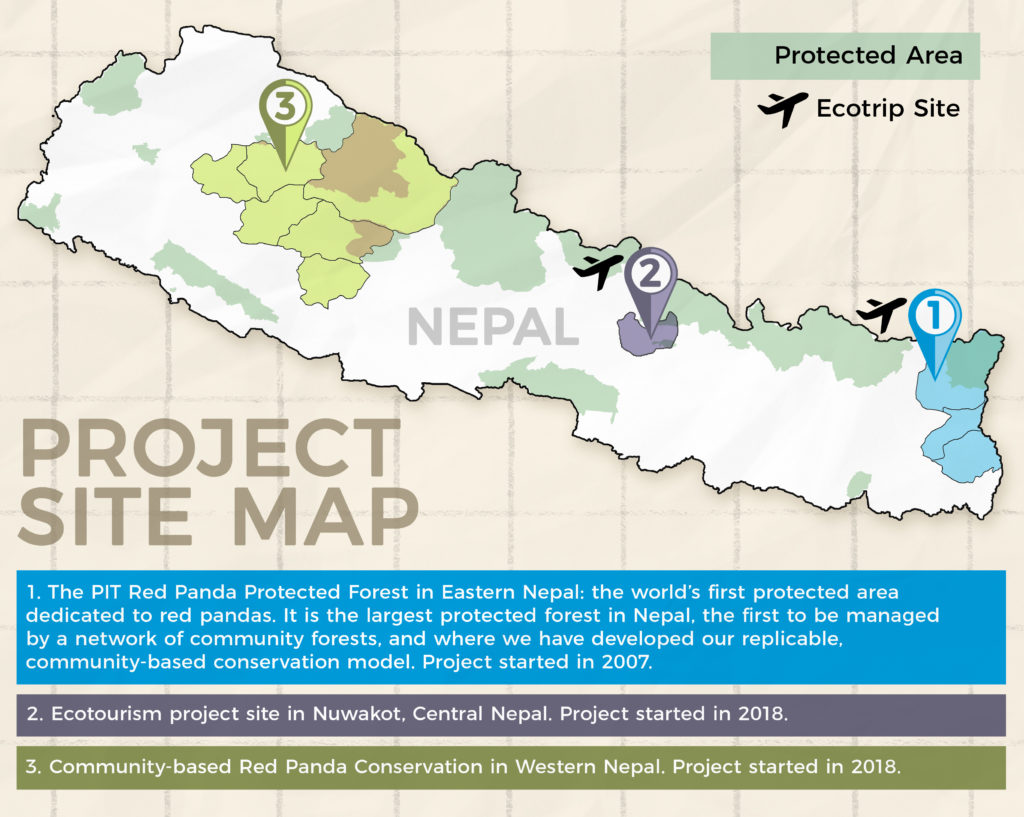
Supporting the communities who live among the pandas is key to our success. We have hired 37 Forest Guardians—reaching 111 total in Nepal. Forest Guardians are the heart of our community-based approach. They work within their communities to create a Community Forest Network, which empowers local people to protect their forests.
Forest Guardians also lead RPN’s anti-poaching network who patrol red panda habitat, remove traps and snares, educate locals on the importance of red panda conservation, and report poaching activity to enforcement agencies. Over the last two years, the anti-poaching network patrolled 467 square km in 33 Community Forests. These efforts have helped us decrease trap and snare presence in the PIT corridor of Eastern Nepal by 60% since 2015.
Additionally, thanks to your generous support, 20 local journalists were trained on reporting illegal wildlife trade.
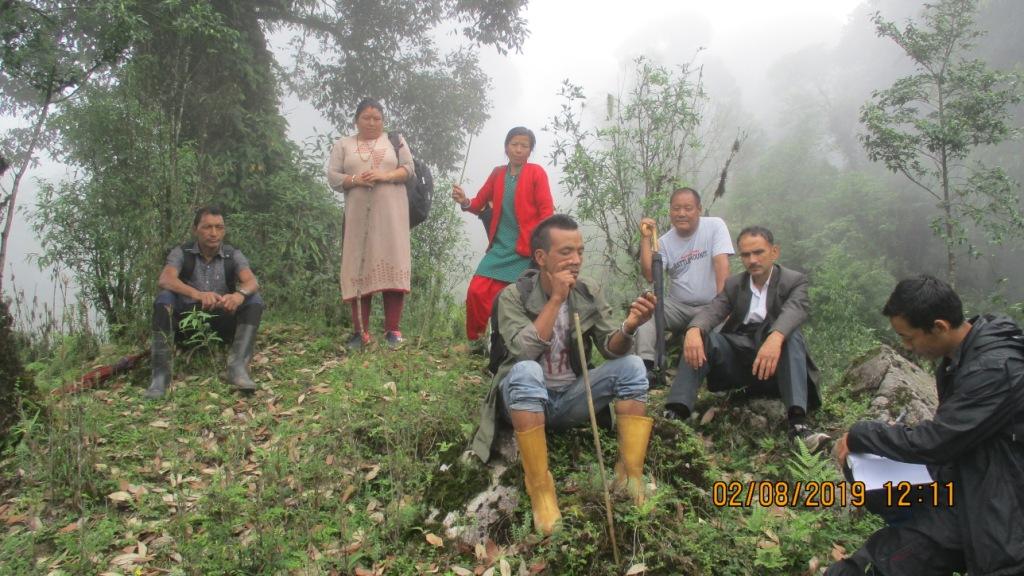
Anti-poaching network patrolling in Eastern Nepal.
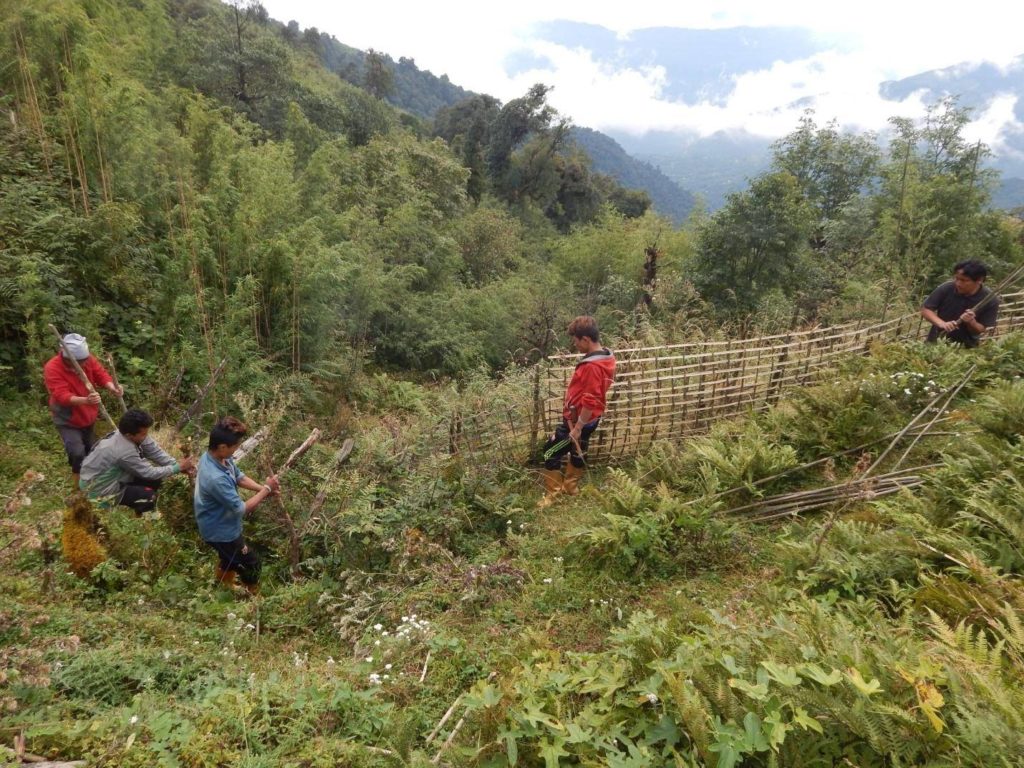 Fence installation at restoration site in Eastern Nepal.
Fence installation at restoration site in Eastern Nepal.
Although the illegal red panda trade is on the rise, deforestation remains the primary threat to the future of this species. Thanks to your support of Plant A Red Panda Home, we have been able to restore 84 acres of degraded forest in core red panda habitat. The trees planted in these areas came from our forest nurseries where
150,000 saplings of native red panda food and non-timber forest product species were cultivated since 2018.
To improve local livelihoods, nearly 3,000 of these high-value saplings were distributed to 112 local families. 63 families and livestock herders also received improved cooking stoves to improve their health and daily lives, as well as protecting forests by saving 390,744 KGS of fuelwood.
Thanks to our passionate donors, RPN is helping herders with improved sheds and practices to mitigate deforestation. Each herder has between two and four herding stations which they rotate through seasonally with their livestock throughout the year. Maintaining these stations is time-intensive and requires large amounts of lumber. In the montane regions where red pandas live, this means reduced habitat. In 2018/19, we distributed improved herding sheds and 21 tents to herders— preserving 5,400 trees in Eastern Nepal!
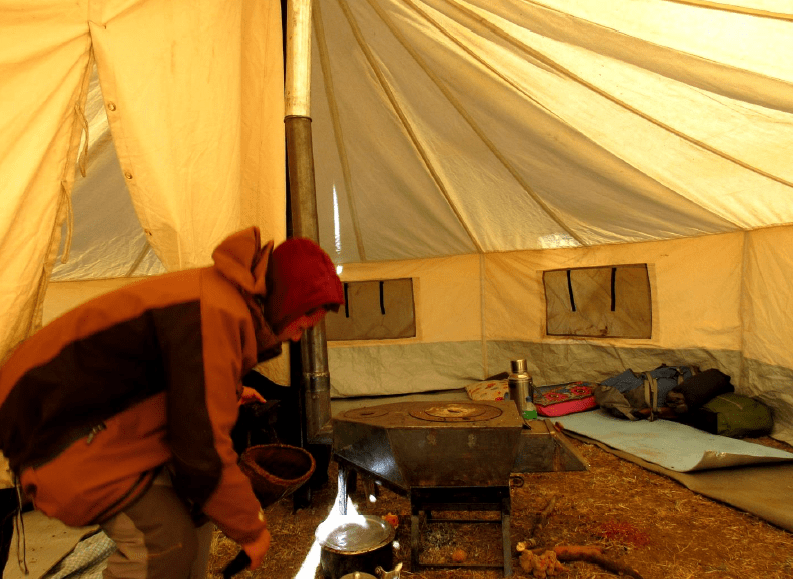 Herder cooking on improved metal stove in herder tent. ©RPN
Herder cooking on improved metal stove in herder tent. ©RPN
Building capacity for wildlife conservation among the people who live alongside red pandas is important to our sustainable development goals. Your commitment to red pandas has also allowed us to provide the following trainings in the PIT corridor:
- 10-day handicraft production for 15 women.
- Nature guide for 20 local youth.
- wildlife crime control for 40 representatives from community organizations and enforcement agencies.
While habitat protection and economic empowerment are top priorities for RPN, we must also invest in the education of future conservationists. Thanks to you, we successfully engaged 12,000 students from 41 schools in celebrating International Red Panda Day and World Environment Day. An additional 7,500 students published red panda bulletins and 3,500 students joined Roots and Shoots Groups in 13 schools in Nepal. We were also able to publish red panda conservation textbooks which were integrated into 21 schools—educating 638 students and 15 teachers.
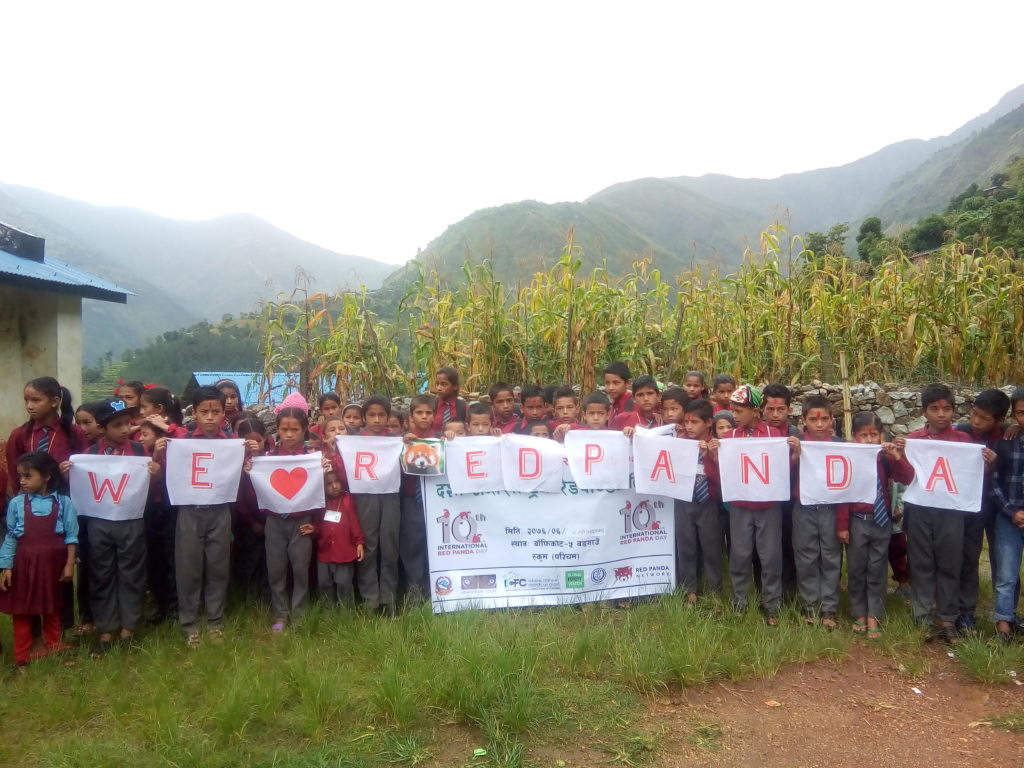
Students celebrating International Red Panda Day 2019 in Rukum, Western Nepal.
Your support and generosity has helped us continue to extend our focus to policy and advocacy in red panda range. 347 newly elected officials were educated and empowered to support conservation programs. We have worked with 12 Community Forest User Groups on integrating red panda conservation provisions into their Community Forest management plans. In 2018, we participated and helped facilitate a transboundary coordination meeting for red panda conservation in the Kangchenjunga landscape.
We have also been able to establish one new Community Forest in Ilam district, Eastern Nepal. This area expands 225 hectares of core red panda habitat.
Thanks to you, governments in range countries are committing to red panda conservation. RPN provided key support to Nepal and Bhutan in publishing their first five-year Red Panda Conservation Action Plan. These plans will provide a thorough framework for engaging local communities and strengthening coordination among conservation actors at national and international levels.
 Cover of Nepal's red panda conservation action plan.
Cover of Nepal's red panda conservation action plan.
 Cover of Bhutan's red panda conservation action plan.
Cover of Bhutan's red panda conservation action plan.
With your generosity, our red panda conservation work will continue to be impactful. Again, from our staff in Nepal and the US, we thank you.
